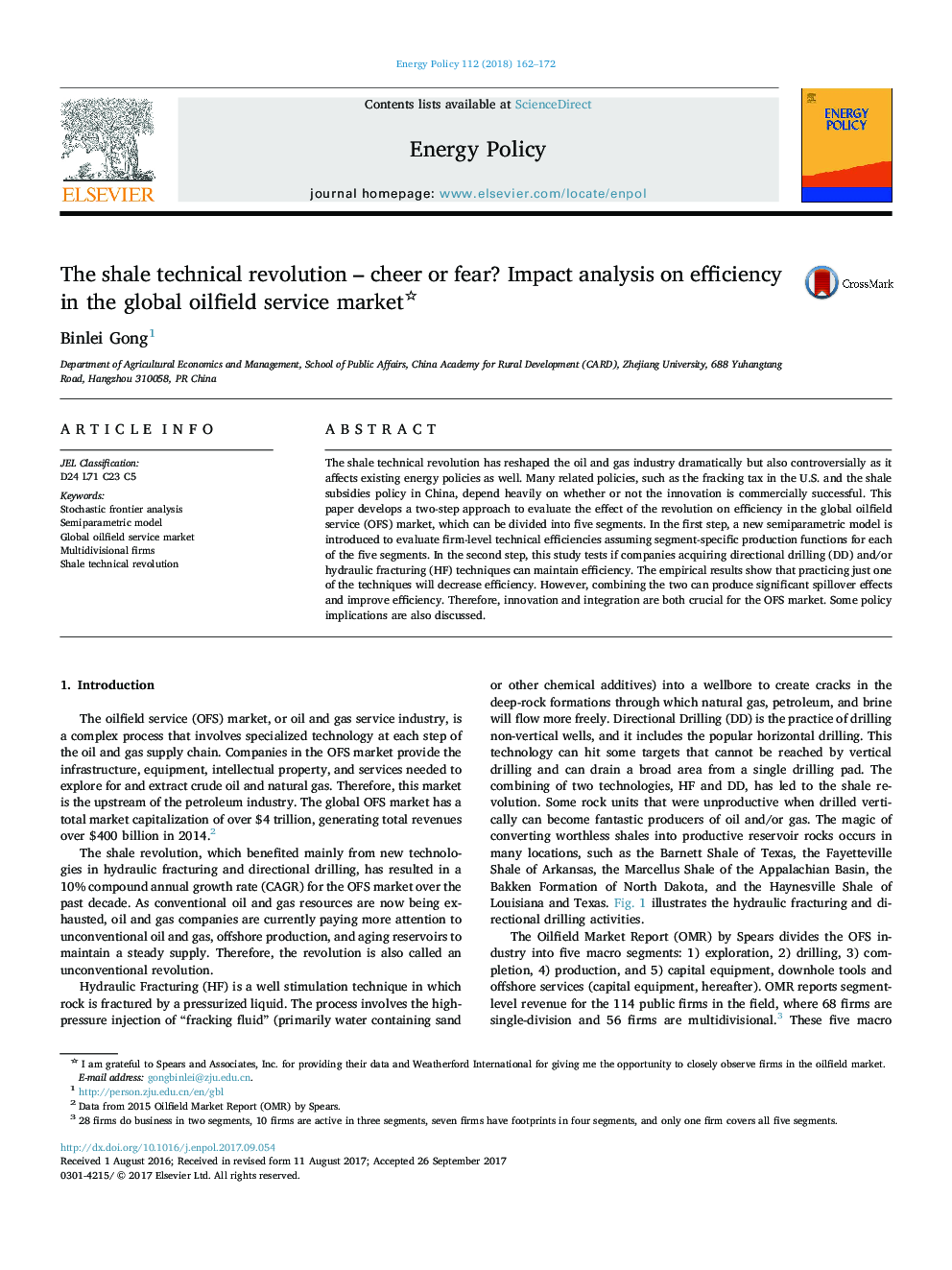| Article ID | Journal | Published Year | Pages | File Type |
|---|---|---|---|---|
| 5105475 | Energy Policy | 2018 | 11 Pages |
Abstract
The shale technical revolution has reshaped the oil and gas industry dramatically but also controversially as it affects existing energy policies as well. Many related policies, such as the fracking tax in the U.S. and the shale subsidies policy in China, depend heavily on whether or not the innovation is commercially successful. This paper develops a two-step approach to evaluate the effect of the revolution on efficiency in the global oilfield service (OFS) market, which can be divided into five segments. In the first step, a new semiparametric model is introduced to evaluate firm-level technical efficiencies assuming segment-specific production functions for each of the five segments. In the second step, this study tests if companies acquiring directional drilling (DD) and/or hydraulic fracturing (HF) techniques can maintain efficiency. The empirical results show that practicing just one of the techniques will decrease efficiency. However, combining the two can produce significant spillover effects and improve efficiency. Therefore, innovation and integration are both crucial for the OFS market. Some policy implications are also discussed.
Related Topics
Physical Sciences and Engineering
Energy
Energy Engineering and Power Technology
Authors
Binlei Gong,
